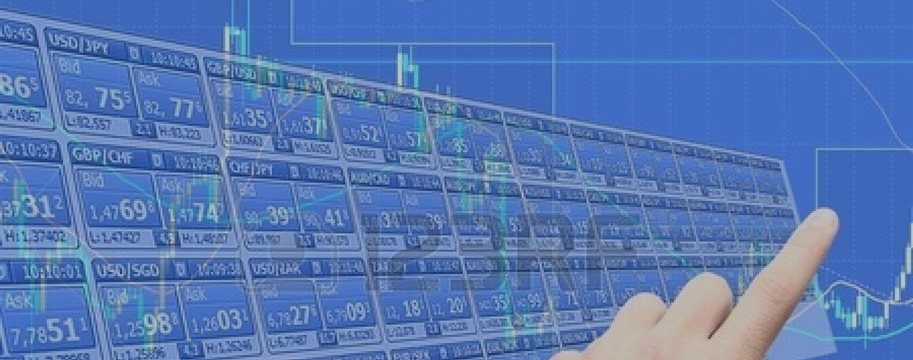
INTERVIEW with Martin Selby - A classic mistake people make is that they start doubling up their positions after losses
Goldsmith was also one of the most colourful tycoons of his era and generated scores of headlines related to his audacious take-over bids, complicated private life and controversial political views.
He doesn't use charts or technical analysis. That's in sharp contrasts to the others who talked extensively about support and resistance levels, trend lines, indicators and so on. What Martin very much proves is that there isn't any particular style of trading, which necessarily leads to success. It's a highly individual thing.
JP (Justin Pugsley from mahifx.com): How did you get started in forex trading?
MS: I worked for Lloyds Bank in 1975 as an office clerk, which I didn't enjoy and it didn't pay well. There was only the prospect of becoming a bank manager. I left after 7 months.
I then moved to Anglo-Portuguese Bank, which no longer exists, working in the back office in settlements for a year. I then became a trainee forex dealer, which is exactly what I wanted. I was trading spot markets.
I later got a job with Banque Occidentale Pour L'industrie et le Commerce, which was owned by Jimmy Goldsmith. However, I moved on after two years as there wasn't much scope to improve my career.
I later traded with an Arab trading company in London's West end.
I then ended up at a mainstream large Arab bank with a full branch in London, which was basically for the rest of my career.
While I was there I specialised at various times in spot cable (GBP/USD), Swissy (USD/CHF) and US Dollar (USD/DEM ). I became chief dealer for 10 years and then a director for 12 years.
I have basically always traded forex throughout my career.
I retired from there and have been trading my own account as a home-based trader for the last five years. I also set up and run a forex intelligence services based in Geneva, which advises companies about their forex positions.
JP: It's interesting that you traded forex for banks and then for yourself – what would you say are some of the key differences between these two ways of trading?
MS: When you're a dealer working in a bank you've no idea what your (trading) position is going to be. For example, you might think cable is going north, so you take a view at 1.7009 and trade £10 million.
But you don't know what the price is going to be later on. Someone might call up and offer 15 (1.7015), but they may want £15 million, in which case you've made 6 points, but you need to find another £5 million to cover your position and can hopefully get that at a lower price than you sold it for.
Also, when people call the dealing room you don't know if they're going to buy or sell on the prices you quote.
Basically, it is very unclear what your position is going to be from moment to moment. The order flow is unpredictable.
It's very seat of your pants stuff.
In a dealing room you have less time to concentrate on your position. However, you can listen to what's going on with the other dealers. So if I'm on cable I might listen to what the trader is doing on Swissy as what's going on there might spill over to cable.
When you're trading on your own account you can be more strategic. You can know what you're going to do, use stop losses, set yourself profit targets and so on.
JP: Can you tell me about your trading style and how it differs now that you trade for your own account (as a private trader)?
MS: It's not that different actually. I take a view on where the market is going and then trade it. I use gut feel.
I don't use charts, mainly because I'm not used to using them. I also don't use technical analysis. I'm not saying charts and technical analysis are bad. Some people make money using them. It's just that I don't use them.
I started out trading forex in the mid-70s when trades were often done by telex. In the 80s the technology started to change and you had squawk boxes and later you'd do trades via a system called Reuters Direct. Basically the technology completely changed.
Also, people didn't start talking about charts in my recollection with any frequency until about 1983.
JP: That's interesting because a lot of other forex traders who leave bank trading desks find they couldn't make it as private traders. The differences were too great.
MS: Yes, that's true and I know people who've struggled with that.
For me it was not a problem. I don't feel a need to be near other traders and dealers to get a feel for the market. For others that's difficult.
JP: Can you tell me how you trade?
MS: When I start in the morning, I read the news and find out what happened overnight in Asia (Martin was based in the UK at the time of this interview). That helps me get a feel for the market.
I then look at the prices and then take a view on where I think the market is going. I'll use a stop-loss on my trades.
I set monthly profit targets and usually for the first week of trading of the month I'll trade with quite tight stop losses. I start trading at the beginning of the month from the basis that profit-wise I'm starting from zero.
JP: How long do your trades last on average?
MS: Probably about two hours. But it can be anything from a few seconds to a day. Sometimes I might carry the position over-night and will use a stop loss with it.
JP: So do you take notice of factors such as support & resistance levels at all?
MS: Yes up to a point. I may read about them in the market reports and I'll make a note of them, but they aren't necessarily a big influence on my trading. In Asia support and resistance is very influential on the market. You have people who just trade off only support and resistance levels.
JP: Were there any books, which you found useful with regards to trading?
MS: To be honest I've not read any forex books. However, I did really enjoy George Soros's book The Alchemy of Finance. I think he really understood things such as herd mentality, not that it specifically relates to just forex.
JP: Given your very discretionary approach to trading (not using a mechanistic trading system), how do you remain disciplined and deal with negative emotions?
MS: Discipline is very difficult and there's no easy way of dealing with emotions. Anyone coming to the market for the first time is going to find that hard to deal with I'm afraid.
A classic mistake people make – and I've done it myself a few times – is that they move their stop losses as the trade loses money and then they start doubling up their positions ie trying to reduce the average cost of the trade.
Most people try to do this sort of thing from time to time or they fall in love with their positions, which is dangerous.
I've only ever known 5-6 people who would just cut their losses every time, regardless, when their stops were hit. They'd be ruthless about it. It's something most people can't do.
If I feel negative emotions about my trading then I will stop trading for a bit, but never for more than a day.


